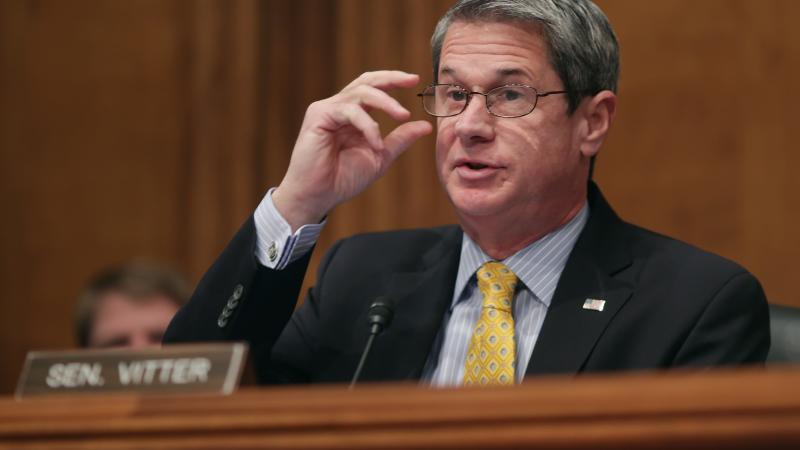Michigan Democratic congresswoman running for U.S. Senate seat appears to flip-flop on China stance
Rep. Elissa Slotkin has supported the TikTok bill that requires the Chinese company ByteDance to divest its stake in the social media company.
Rep. Elissa Slotkin, a Democratic candidate running for the open U.S. Senate seat in Michigan, is taking a hard stance against China with two House bills after her staff member signed a nondisclosure agreement regarding a CCP-backed project in Michigan.
Slotkin, a former Central Intelligence Agency intel analyst running for retiring Sen. Debbie Stabenow’s (D) seat, has supported both the Protecting Americans from Foreign Adversary Controlled Applications Act and the Protecting Against Foreign Adversary Investments Act, which are bipartisan bills that lawmakers claim will help curb China’s influence in America.
The first bill is the legislation regarding the social media app TikTok that has passed the House and is being considered by the Senate. The bill requires the Chinese company ByteDance to divest its stake in TikTok within 165 days or face a ban on the popular smartphone application in the U.S.
In a statement following the passage of the TikTok bill, Slotkin wrote on Wednesday, “Today, I voted for legislation that will protect Michiganders’ privacy online and safeguard American’s national security by requiring TikTok sever its ties with the Chinese Communist Party in order to continue operating in the United States."
“As a lifelong national security professional, I recognize TikTok’s capability to track just about everything individuals do on their phones and to spread CCP propaganda, and the ways TikTok could be weaponized against the United States and our people,” she added.
The second bill that Slotkin supported “would provide expanded authority to the Committee on Foreign Investment in the United States (CFIUS) to conduct national security reviews of significant real estate purchases by foreign entities of concern – namely, companies with ties to China, Russia, Iran, and North Korea,” according to her office’s website.
Slotkin said in a statement regarding the bill, “While foreign investment in the U.S. can support much-needed economic development, jobs and innovation, it can also threaten our national security. To address that risk, we need to have official national security experts review these land purchases with clear-eyed expertise, and without fear or favor."
“The CFIUS panel already reviews corporate acquisitions and a limited number of real estate deals,” she added. “This bill will give the experts at CFIUS the ability to examine a much broader set of real estate transactions. This means we can stop purchases that pose an actual risk to national security – and give comfort to Americans that new projects in their communities have been carefully examined by national security professionals.”
However, Slotkin’s deputy legislative director signed a non-disclosure agreement (NDA) regarding a plant project in Michigan for the electric vehicle battery company Gotion, which is the American subsidiary of a Chinese company.
According to an information request shared with Fox News, Slotkin signed an NDA in January 2022 that was amended later that year to include confidential projects, which would encompass Gotion.
Slotkin disputes that assertion. Slotkin’s spokesperson told Fox News, "Congresswoman Slotkin has never had any contact with Gotion, period — nor did she ever sign an NDA relating to that project.
"Any suggestion otherwise is patently false," the statement continued. "In January 2022, Rep. Slotkin signed an agreement with the State of Michigan to discuss a new General Motors electric vehicle battery plant being built in her own district. Any attempt to conflate these facts is just a dishonest political attack."
Gotion received $175 million in state taxpayer dollars for the plant project.
When reached for comment, Slotkin’s office provided the congresswoman’s statements on both the TikTok and investment bills, while noting that the NDA Slotkin signed wasn’t related to the Gotion project.
Slotkin’s NDA was regarding an attempt to bring Micron to Eagle Township and a bid for a General Motors battery plant in Delta Township, according to The Detroit News.
Meanwhile, one of the GOP candidates for the U.S. Senate seat in Michigan is also in a similar situation regarding China.
Former congressman Mike Rogers, who is the Trump-endorsed GOP candidate, has come out strongly against China over the years, but he worked on a deal with a company that had ties with Chinese telecom giant Huawei.
After leaving Congress, Rogers worked as chief security adviser for AT&T around when the company was being criticized by federal lawmakers for its connections with China-based Huawei, The Detroit News reported.
While there were reports that AT&T nearly had a deal that collapsed to sell Huawei’s phones in the U.S., the company doesn’t use Huawei’s equipment in the U.S. today. According to a 2019 Wall Street Journal report, AT&T used gear from Huawei in Mexico.
Rogers stopped working with AT&T in 2017.
"Mike has never advocated for any Chinese company, including Huawei, in any way, shape, or form," Chris Gustafson, spokesman for Rogers, told The Detroit News. "In fact, he has consistently for over a decade advocated against Huawei in Washington. Any insinuation to the contrary is disingenuous and purely political in nature."
When he was the House intelligence committee chairman, Rogers co-authored a report that said Huawei might be violating U.S. laws.
On Saturday, Rogers posted on his X (formerly Twitter) account, “China is the greatest threat to America’s national and economic security. That’s why I’ve spent my career working to hold China accountable and put the American people first. But we cannot let up, we must win this competition.”
The post included Rogers’ opinion piece from last May regarding a potential future “where China wins” and “America’s fate is not in its own hands.”
Rogers’ campaign sent Just the News a link on Sunday to a statement that Rogers posted on his X account:
"In 2012, as Chair of House Intel, I sounded the alarm on Chinese telecom companies, specifically Huawei, being a threat to national security. I co-authored a bipartisan report warning about the dangers of Chinese telecom equipment used in American networks, even going on 60 Minutes to take the warning directly to Americans.
"In 2014, AT&T was known to have connections with Huawei," Rogers' statement continued. "In 2016, I was hired by AT&T to advise on cyber threats. Today, AT&T doesn't use Huawei equipment in its U.S. network. I also worked as a risk analyst for Nokia USA. In January, Nokia announced it was selling its stake in a China-based venture. The thought that this would be a coincidence defies logic.
"These are the facts. It is public record. I will put my record on China against anyone, anytime," his statement concluded.
The Facts Inside Our Reporter's Notebook
Links
- passed the House
- Slotkin wrote
- she added
- according to her officeâs website
- Slotkin said
- she added
- signed a non-disclosure agreement
- information request
- Slotkinâs spokesperson told Fox News
- the statement continued
- Gotion received $175 million
- according to The Detroit News
- The Detroit News repoted
- nearly had a deal
- collapsed
- doesnât use Huaweiâs equipment
- Wall Street Journal report
- stopped working with AT&T
- told The Detroit News
- Rogers co-authored a report
- Rogers posted
- opinion piece













